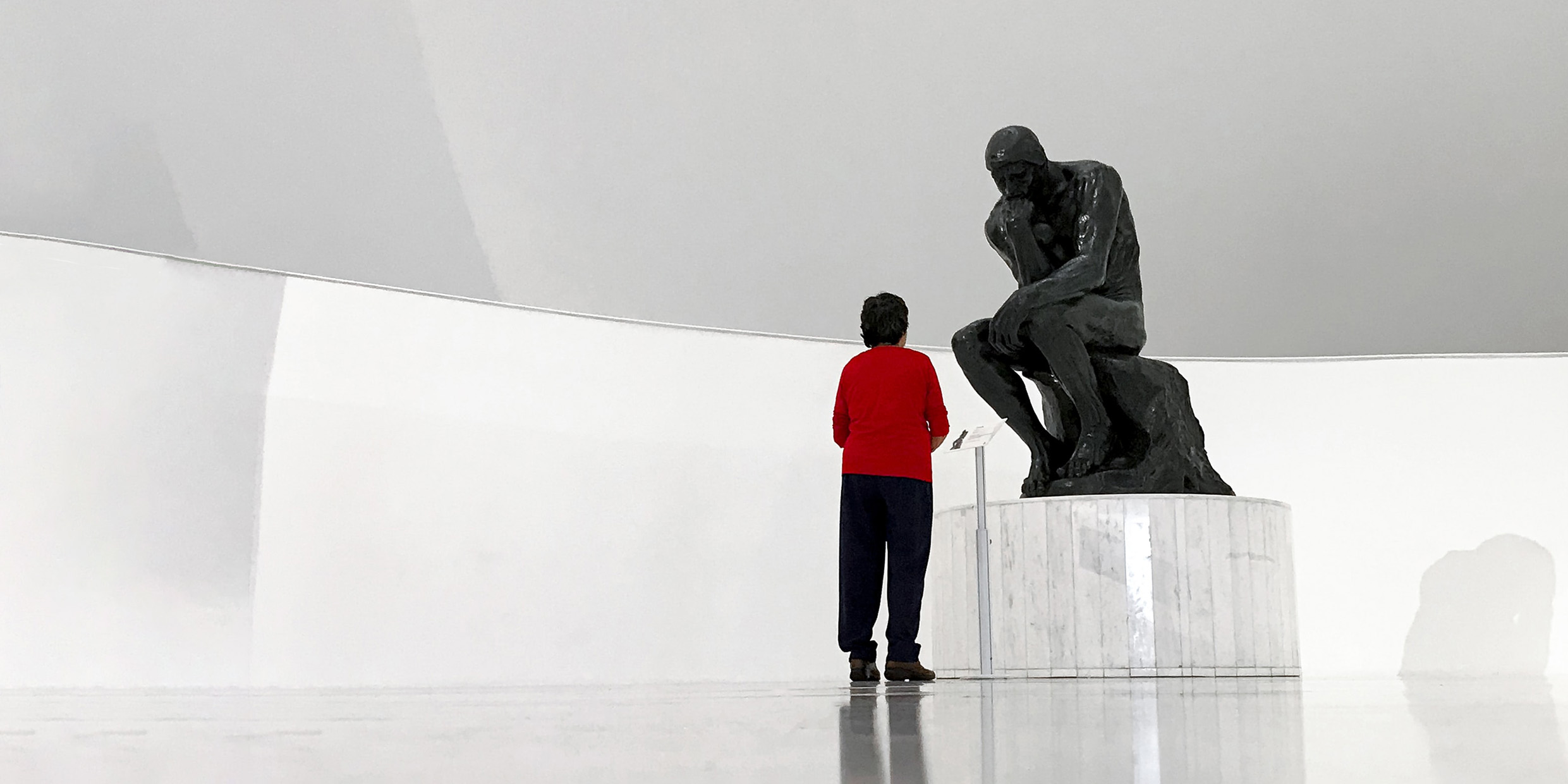Originally published 4 June 2002
Philosopher René Descartes insisted that body and soul are different things. “I think, therefore I am,” he famously said. His “am” was not made of flesh and bone.
Science overwhelmingly refutes Descartes. “I am, therefore I think,” is closer to the modern view. Biology and neuroscience have found not the slightest evidence that a human self can exist independently of the body — not even a glimmer of Cartesian body-soul dualism.
Whatever the human self is, it is inextricably wrapped in flesh.
But what is a self? How does it arise? How is it maintained? These questions are being vigorously investigated by immunologists, biochemists, neuroscientists, and philosophers. A recent issue of the journal Science (April 12, 2002) summarized where we stand in the science of self. The questions are still open, but outlines of the answers are becoming clear.
From a biologist’s point of view, even a single-celled bacterium qualifies as a self — a unit of life that is organized to nourish itself and protect itself from attack by non-self.
At some point in the history of life, prokaryotes (the simplest cells, without nuclei or interior compartments) combined to form more complex cells known as eukaryotes (with nuclei and compartments such as mitochondria and chloroplasts). A new higher self came into being when the individual constituents of eukaryotes evolved ways to work together without conflict.
Multi-celled plants and animals evolved still later, and again found ways to merge separate cellular identities into higher and more complex selves.
Our own bodies are colonies of trillions of cells that share the identity of a single self.
Colonies of social insects such as ants have several levels of self identity. Individuals insects are selves, but the colony must be accorded its own kind of selfhood. Certainly, all members of a colony recognize the colony to which they belong, and resist incursions of other colonies, even of the same species.
So what does science say about the human self?
We might begin by looking for a self in all those trillions of cells that share the same genes. Forensic scientists can identify the perpetrator of a crime from a single hair or drop of semen. To the DNA scientist, a scrap of my skin is recognizably me.
A second approach to self is embedded in the human immune system. Our bodies have astonishingly complex defenses against non-self invaders that can cause us harm. If it weren’t for our immune systems, non-self pathogens and parasites might quickly destroy us. How the body recognizes threatening non-self (germs, snake venom) from harmless non-self (food, fetus) is one of the most intriguing problems being investigated in science today, and one of paramount importance to medicine.
Of course, none of this is what we are usually thinking about when we say “I love you,” “I’m depressed,” “I stubbed my toe,” or “You deceive yourself.” Personal pronouns assume a self that is more than genetics or immunology. But even this conscious self is embedded in collections of interacting cells, as brain studies make crystal clear.
Until now, definitions of self-awareness have been mostly the province of philosophers laboring under the lingering influence of Descartes. But philosophers are increasing turning to experimental neuroscience and cognitive science for clues to self-awareness.
Writing in Science, philosopher Patricia Churchland guesses that the nervous systems of higher animals evolved out of the need for central control of the body’s many organs — heart, lungs, viscera, liver, adrenal medulla. Clearly, any system capable of coordinating a body-wide response to danger signals, or even to coordinate the need for rest and digestion, has a high survival value and will be favored by natural selection.
Eventually, evolving nervous systems gave rise to the human brain — and to self-awareness.
As the creature with the most complex nervous system, we like to think of ourselves as somehow qualitatively different from other animals; thus our affection for Descartes and his idea of a disembodied soul. We like to imagine that our selfhood can float free of our physical bodies.
But everything we have learned experimentally about the human self — from genetics, immunology, neurobiology, and reproductive science — confirms that our precious selfhood is only the most elaborate of evolution’s many levels of cellular organization.
To my way of thinking, this does not lower our stature in the universe, but rather makes us part and parcel of the greatest miracle of all — life’s grand thumbing of its nose at nature’s law of entropy, which requires the universe to eventually grind every complexity to dust.



